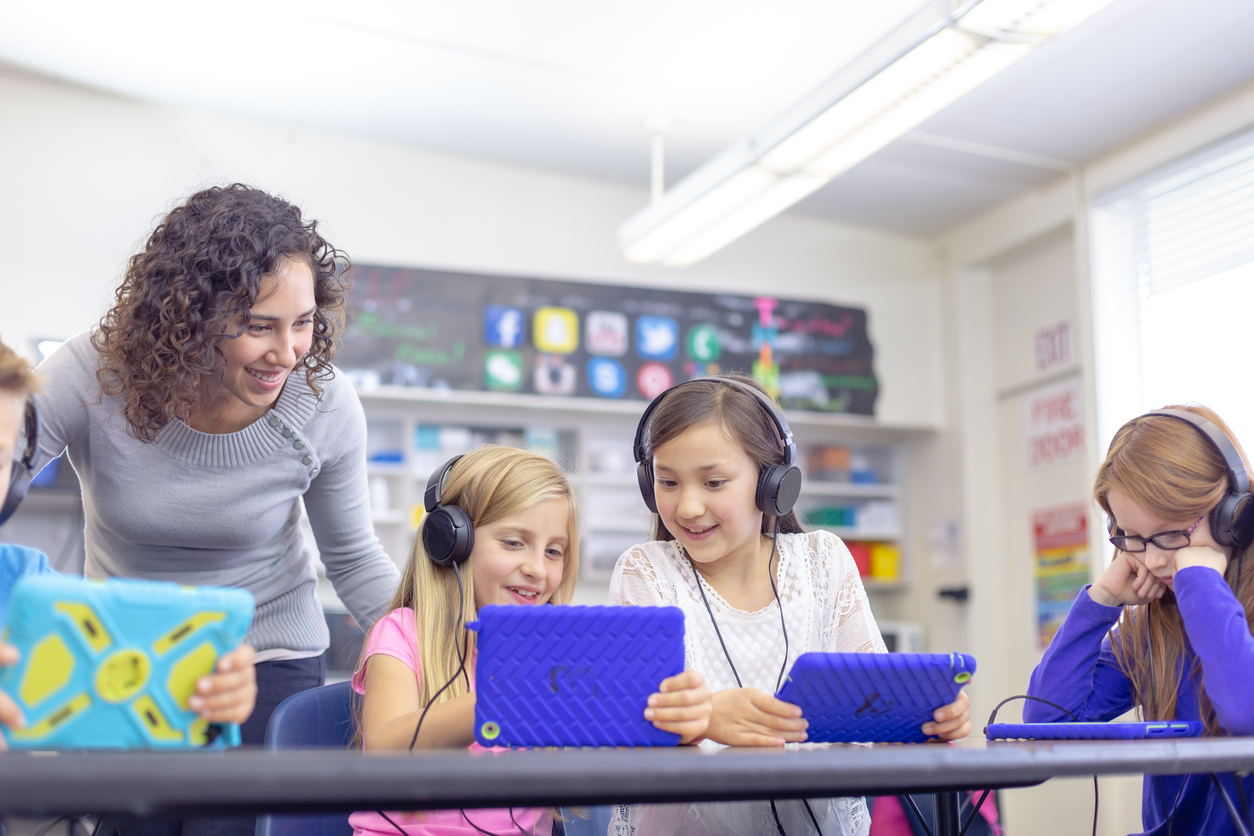Accelerate Learning with Primary Science Tuition Singapore for Young Minds
Accelerate Learning with Primary Science Tuition Singapore for Young Minds
Blog Article
Checking Out the Different Training Methods in Primary Science Education And Learning Today
The landscape of main scientific research education and learning is developing, with different mentor methods acquiring prominence in contemporary classrooms. Inquiry-based learning, hands-on experiments, and the assimilation of modern technology are redefining exactly how educators involve young minds. Furthermore, joint strategies and differentiated guideline are being utilized to accommodate the diverse needs of trainees, enhancing both interaction and understanding. As we check out these methodologies, questions emerge about their effectiveness and the effects for future academic techniques. What might these shifts in method mean for the following generation of learners?
Inquiry-Based Knowing
Inquiry-Based Discovering (IBL) is a pedagogical technique that encourages trainees to explore scientific concepts through doubting, examination, and hands-on experimentation. This method emphasizes the role of trainees as energetic participants in their discovering, promoting vital reasoning and problem-solving skills. By engaging with real-world concerns, pupils become motivated and curious, which improves their understanding of clinical concepts.
In IBL, educators act as facilitators, directing pupils as they navigate their queries rather than providing details directly. This student-centered technique permits distinction, accommodating different discovering paces and styles. Trainees develop skills in creating hypotheses, developing experiments, and examining information, which are essential for clinical literacy.
Additionally, IBL cultivates cooperation amongst pupils, urging them to share concepts and findings. This collective inquiry advertises social skills and a sense of community within the class. The procedure of query urges strength, as trainees discover to welcome failure as a tipping rock towards understanding.
Hands-On Experiments
Hands-on experiments are an essential component of efficient science education, enhancing the principles of inquiry-based understanding. These experiments enable pupils to engage directly with scientific ideas, promoting a deeper understanding via experiential knowing. By adjusting products and observing results, young students can comprehend abstract theories in substantial methods.
Such activities promote essential reasoning and problem-solving abilities, as students hypothesize outcomes, conduct experiments, and assess results. This procedure urges them to ask concerns, refine their understanding, and establish a scientific attitude. Moreover, hands-on experiments can be tailored to diverse knowing designs, guaranteeing that all pupils have the opportunity to involve meaningfully with the content.
Furthermore, hands-on experiments usually encourage partnership amongst peers, promoting teamwork and communication abilities. Working in groups enables students to share concepts, talk about findings, and gain from one an additional, which enhances their overall educational experience.
Including hands-on experiments right into the main science curriculum not only improves the learning setting yet likewise grows a long-lasting passion in science. By proactively taking part in their education and learning, pupils are more likely to create a passion for clinical query that extends beyond the classroom.

Modern Technology Integration
Integrating modern technology right into key scientific research education has ended up being significantly essential in fostering student interaction and boosting finding out results. Making use of digital devices, such as interactive simulations, digital laboratories, and educational software application, provides pupils with possibilities to check out clinical concepts in ingenious methods. These resources assist in a much deeper understanding of complex subjects by enabling students to imagine and manipulate variables that would certainly be impractical in a traditional class setting.
Moreover, technology assimilation motivates individualized finding out experiences. Trainees can proceed at their own pace, revisiting challenging ideas through multimedia sources, which accommodate different understanding styles. This flexibility not only supports individual development but likewise cultivates a sense of autonomy in learners.
Furthermore, modern technology works as a bridge to real-world science, attaching students with existing study and specialist contributions. Access to on-line databases and clinical journals widens pupils' point of views on clinical inquiry and promotes essential believing abilities.
Collaborative Knowing
Collective learning plays an Our site essential role in main scientific research education by cultivating teamwork and communication skills amongst trainees. This strategy urges learners to collaborate, share understanding, and take part in analytic, which boosts their understanding of clinical ideas. By getting involved in team tasks, pupils learn to articulate their ideas, listen to diverse perspectives, and negotiate options, every one of which are crucial abilities in both academic and real-world contexts.

Research study indicates that collective learning can result in raised motivation and involvement in scientific research subjects, as students discover satisfaction in shared experiences (primary science tuition Singapore). In addition, this approach prepares trainees for future collective undertakings, equipping them with the skills needed for reliable teamwork in greater education and learning and professional atmospheres. Eventually, embracing collective learning in main science education and learning can substantially improve the learning experience and promote a deeper understanding of scientific query
Set Apart Instruction

Differentiated direction can materialize in various methods, such as differing the material, processes, or products of learning. As an example, instructors may make use of tiered tasks that supply varying levels of intricacy, permitting trainees to operate at their particular readiness levels. In addition, versatile organizing approaches can facilitate cooperation amongst pupils with various capacities, cultivating peer knowing.
Evaluation plays an important function in this technique, as it educates direction and assists instructors understand each trainee's distinct demands. Developmental assessments, such as tests and observations, can lead teachers in adjusting their methods to improve finding out outcomes. primary science tuition Singapore. Inevitably, by carrying out set apart guideline in primary scientific research education and learning, teachers can grow a more reliable and fair understanding atmosphere, encouraging all trainees to reach their complete potential in understanding clinical sensations
Conclusion
In recap, the varied training methods in main scientific research education and Full Article learning, including inquiry-based learning, hands-on experiments, modern technology integration, joint understanding, and separated guideline, jointly add to a much more reliable understanding atmosphere. These approaches promote critical thinking, analytical abilities, and a much deeper comprehension of scientific concepts. By carrying out these methods, instructors can develop interesting and supportive classrooms that resolve the diverse demands of students, ultimately cultivating a long-lasting interest in scientific research and improving academic achievement.
Inquiry-Based Learning (IBL) is a pedagogical method that motivates pupils to discover scientific ideas through questioning, investigation, and hands-on trial and error.Collaborative learning plays an important duty in primary science education and learning by promoting teamwork and communication skills among students.Study shows that joint knowing can lead to enhanced motivation and involvement in science topics, as students locate satisfaction in common experiences.In cultivating a comprehensive discovering environment, distinguished instruction emerges as a key technique to accommodate the varied requirements and abilities of pupils in primary scientific research education. Inevitably, by applying differentiated direction in main science education, instructors can cultivate a more fair and efficient discovering environment, empowering all students to reach their complete possibility in recognizing scientific phenomena.
Report this page